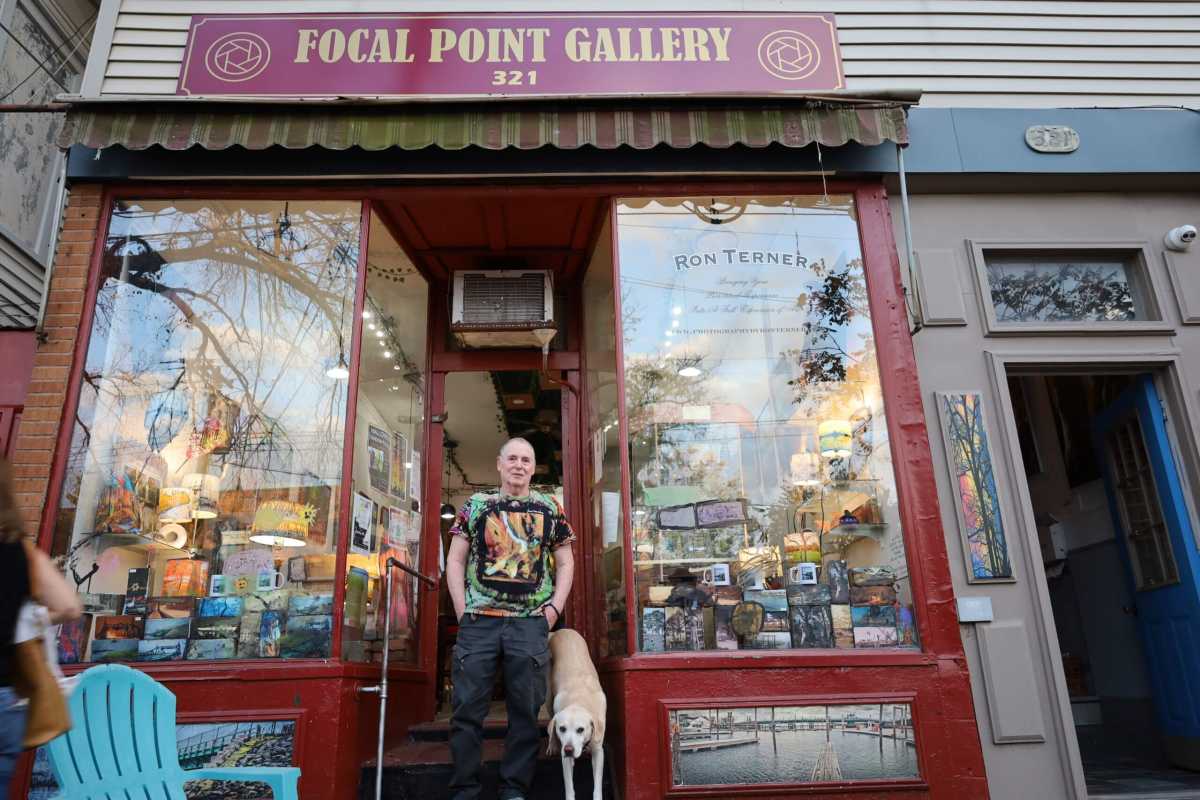City Island has a population just shy of 4,500 and operates like a small town where everyone knows each other.
The main throughfare is speckled with seafood eateries, quaint antique shops and between Bay and Fordham streets at 321 City Island Ave. is Focal Point Gallery. There, owner Ron Terner and his 10-year-old golden Labrador Monita sit in the shop while he works. Whether it’s providing photographic services for customers, creating his own multimedia artwork or selling his girlfriend’s jewelry, Terner is there every day and has been there for nearly 50 years.
Back in 1974, Terner had just graduated from the Germaine School of Photography in Manhattan and was eager to make a living as a professional photographer. One day, he received a notice in the mail about an arts & crafts fair in City Island and was eager to display his work. He showed his portfolio to the organizers and was welcomed with open arms.
“It was a group of hippies (in City Island) and I’m of that generation,” said Terner. “I was a hippie. When I had hair, it was down to my shoulders, and a beard, the whole nine yards.”
He showcased his work at the arts & crafts fair for two days and fell in love with the island. He sought out the main player in the Arts scene there, Warren Sonberg — presently working as a sculptor in Costa Rica — and expressed his interest in setting up shop.
“I would love to open up a gallery,” Terner told Sonberg. “Do you think it would work?”
“Oh yeah, sure, sure, no, definitely,” Sonberg reportedly replied. The rest is history.
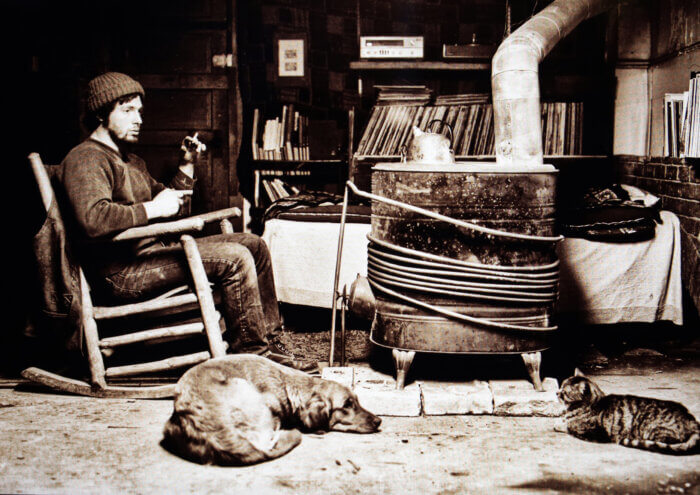

Since 1974, Focal Point gallery has had three homes, but its first residence at 296 City Island Ave. — an address that included a meaningful number for Terner — was a good omen.
“That number saved my life,” he said.
In 1969, the Selective Service System of the U.S. started a draft lottery system for the Vietnam War. Numbers were issued to men born from Jan. 1, 1944 to Dec. 31, 1950 — with Terner being born May 27, 1949. His number was 296 — the draft selected numbers one through 183.
Terner would hold that number dear to his heart and when his new City Island address had those same three numbers, he knew he was in it for the long haul. Nearly half-a-century later, he still calls the island home.
Terner was a mere 25 years old when he opened his first gallery and while he may have seemed affluent to some outsiders, Terner was far from wealthy. The gallery space served as his home, and he wore woolen caps and overalls to stay warm as well as burned wood for lack of heat. He even had locals bring a junked boat for him to pull wood from.
In addition to owning a gallery, Terner also taught photography workshops at the local community center and witnessed the birth of Photoshop, which inspired him to adopt digital photography at the dawn of the movement. But he wasn’t always a photographer.
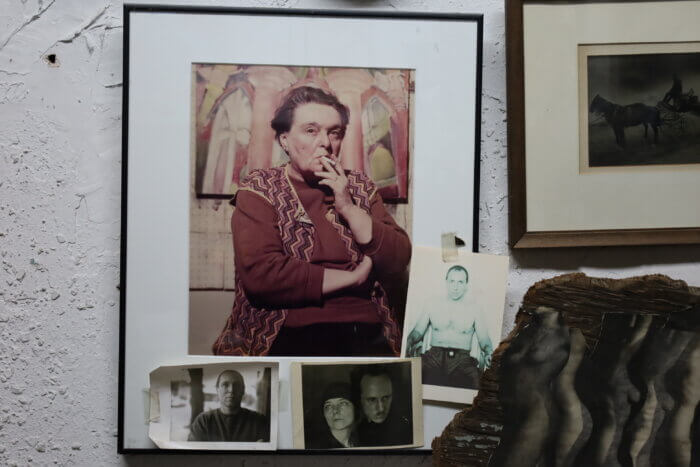
Humble beginnings
Terner’s parents were Holocaust survivors. They were high school sweethearts back in Vienna and torn apart by the war. They both landed in NYC — his father in Harlem and his mother in Queens. They reunited by happenstance at the 1964 World’s Fair in Queens, got married and had two sons.
Terner grew up on Daly Avenue in the Bronx near the Bronx Zoo and would hop the fence to ogle at the Zebras and seals as a young kid.
Terner’s father was a lab technician who worked his way up to a parasitologist and took Terner under his wing. At the age of 14, Terner was working in the Rheumatic Disease Unit at Montefiore Hospital and eventually worked his way up to a lab technician as well. But Terner knew in his heart that he wanted to be an artist and his maternal grandmother, Anne Kellogg from Vienna, helped keep that dream alive.
“It was hard for my parents for me to become an artist,” said Terner. “I don’t think my mother and father were that thrilled that that was the life I decided.”
However, Terner came from a long line of artists and performers and credits Kellogg as his influence.
“She’s why I became an artist,” said Terner of his grandmother who would always take him to the Metropolitan Museum of Art. “Our favorite was the impressionist wing.”
Terner’s grandmother fostered his talent and creativity, and it was because of her that he knew he had a gift to pursue.
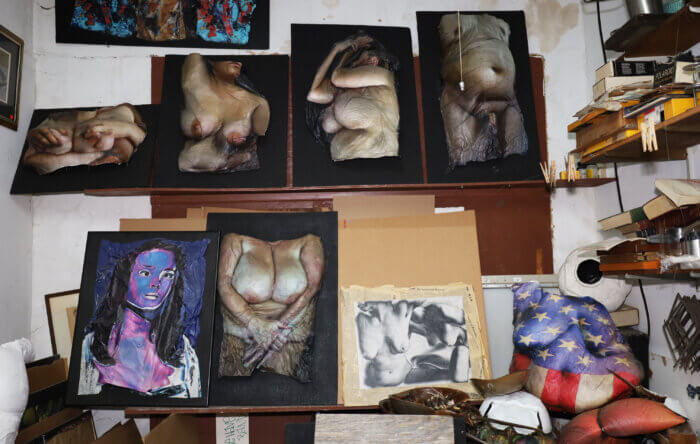
In the end, his parents applauded his choice.
“They’re very proud,” said Terner. “My father’s not with me. But my mother still is, she’s 98.”
At Focal Point Gallery, there is a sporadic flow of customers, artists and neighborhood regulars. Sometimes they come in just to say hi to Monita who had a life-saving surgery in September thanks to the generosity of locals. When they got wind of Monita’s declining health, they rallied to create a GoFundMe for the pooch and within two days they raised the $6,000 needed for her treatment.
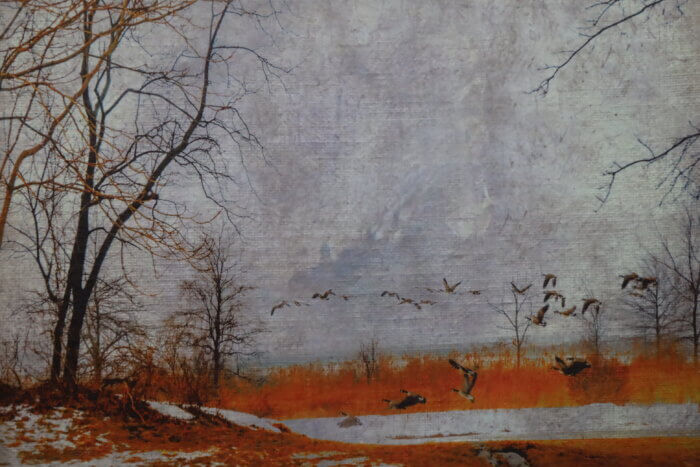
Today, Terner is 74-years old, he wears grey New Balance sneakers, a warm smile, prefers tea to coffee and knows everyone who walks into his shop. He is known for his photo-transfers where he takes photographs and transfers them onto any surface, but he makes his bread-and-butter as an events photographer.
Terner is grateful to the City Island community for his success and said he could not have done it without them.
“It accepted me, and I became the artist/photographer that I am today because of City Island.”
Reach ET Rodriguez at etrodriguez317@gmail.com. For more coverage, follow us on Twitter, Facebook and Instagram @bronxtimes

